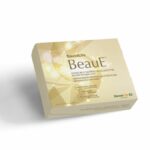Ask the Experts – Dry Skin
Dry skin is common. The skin loses moisture and may crack and peel, or become irritated and inflamed. But there is more to it than just these reasons. Our medical expert from Pantai Hospital explains.
Table of Contents
What are the classic symptoms of dry skin?
Dry skin looks and feels rough and scaly. The skin feels tight, especially after showering or swimming. There may also be some flaking or peeling and fine lines and cracks sometimes appear. Dry, red patches may appear which usually itches.
Do genetics play a role in dry skin?
There are some genetic conditions that predispose to dry skin, for instance eczema and ichthyosis. In the last decade, the discovery of mutation in the filaggrin (FLG) gene has been found to be the cause of ichthyosis vulgaris and is a strong genetic risk factor for eczema.
Can dry skin problems triggered by allergies?
Skin rash due to allergic or irritant contact dermatitis (skin rash following contact with something that the skin is sensitive to) can result in either itchy, weepy rash with blisters on the skin or dry, itchy, scaly rash with cracks and fissures. Generalised skin rash from an allergic reaction due to ingestion of medications or certain food can also give varying degree of dry skin ranging from mild dryness that lasts for a few days to severe peeling and shedding of the skin which can last for weeks.
Low grade irritant and allergy contact dermatitis can result in many years of dry irritated or itchy skin particularly on the hands and sometimes on the face.
Should you treat dry skin on your face and body differently?
The fundamentals of treating dry skin on the face and body are the same. These are: using mild soap and moisturise. However, skin on the face is exposed to the sun a lot more and hence, it is a good idea to use a moisturiser with some sun protection, especially for those who dislike applying a separate layer of sun protection.
Can medical conditions cause dry skin?
Certain medical conditions like hypothyroidism, malnutrition, severe dehydration can cause dry skin. Certain medications like tablets to treat acne, can also cause dry skin.
What ingredients are good for dry skin?
A good moisturiser contains both the barrier component and humectant component. Barrier component (which is the oil based ingredients) acts as a protective layer to prevent water loss and trapping moisture in. Humectant (hyaluronic acid, glycerin, propylene glycol etc) has hydrating properties by attracting water molecules to the skin.
Are there any foods or drinks that help dry skin?
Food rich in Vitamins A, C, E and certain vitamin Bs are generally good for dry skin. Foods rich in the essential fatty acids found in walnuts, flaxseed, salmon, and olive oil can help skin cells stay hydrated. Dehydration can cause dry skin but drinking gallons of water does not make your skin more hydrated.
How can dry skin be prevented?
Avoid showering in really warm shower as it can dry out the natural oils in our skin more quickly. Avoid harsh soaps and use a mild, pH balanced soap, liquid cleanser or soap substitute especially made for dry skin. Frequent use of moisturiser on the affected area is very important. Find a moisturiser that is moisturising enough for your skin condition. For example, very dry skin will need rich moisturising cream or ointment instead of lotion, which is more suitable for mildly dry skin.
Can moisturising help dry skin?
Yes, definitely
When should one with dry skin consult a dermatologist?
When despite taking measures above, skin remains dry, irritated or itchy, it is time to see a dermatologist to look into possible causes of your dry skin and plan appropriate treatment for it.





















Leave a comment